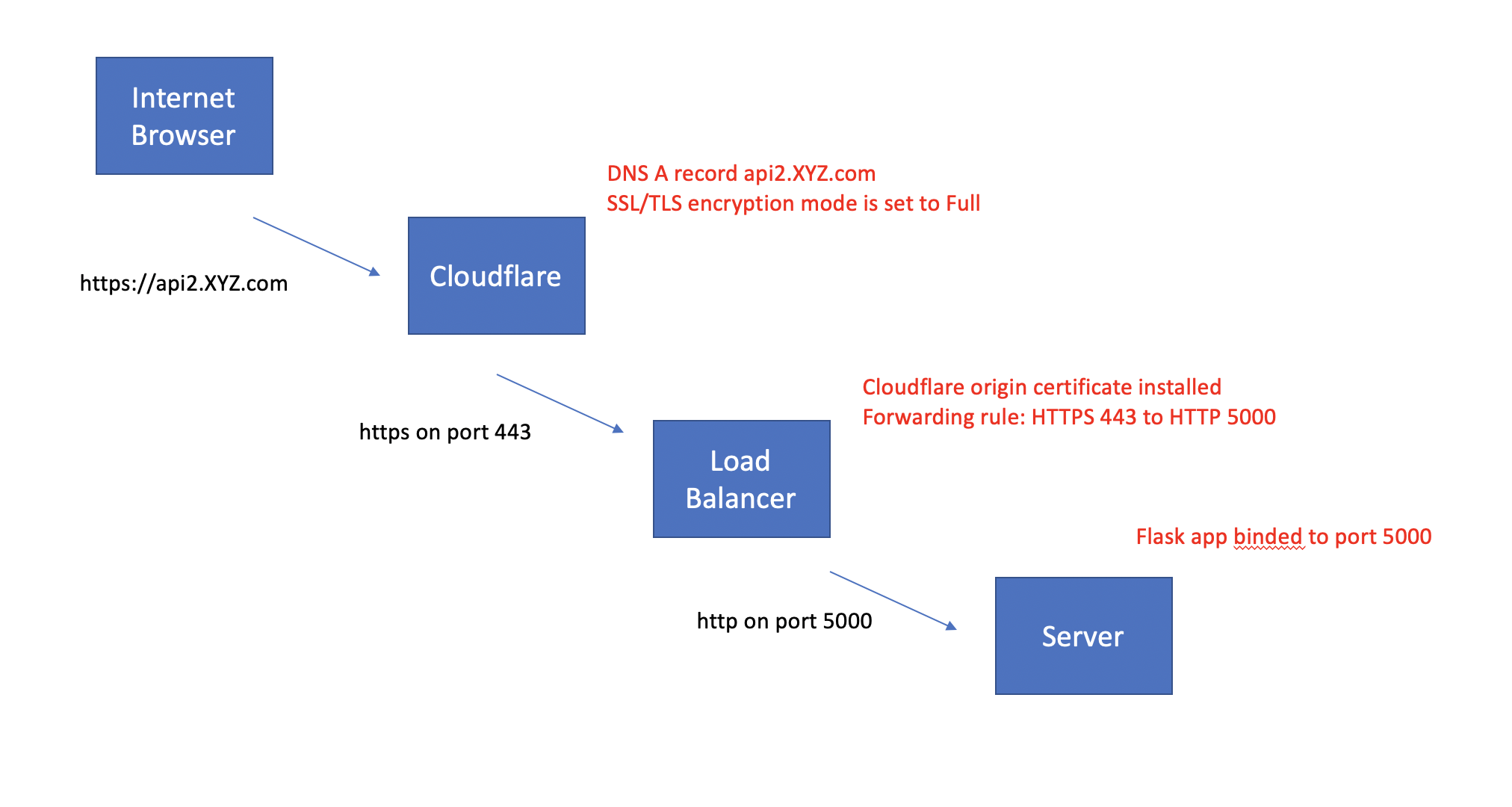Here is a summary of what I'm trying to do:
I can get my flask app to respond without HTTPS/SSL. But am receiving a '503 Service Unavailable' when I am trying to use SSL. My understanding is since the load balancer has the Cloudflare origin certificate installed, it will SSL terminate so the flask app does not need modifications for SSL.
Here is my Kubernetes yaml for the load balancer and flask app service:
apiVersion: v1
kind: Service
metadata:
name: flask-service
labels:
run: flask-service
annotations:
service.beta.kubernetes.io/do-loadbalancer-tls-ports: "443"
service.beta.kubernetes.io/do-loadbalancer-certificate-id: "68e1d971-1a7c-40d2-8f33-aed797a9535d"
spec:
selector:
app: flask
ports:
- name: tcp
protocol: "TCP"
port: 5000
targetPort: 5000
- name: https
protocol: TCP
port: 443
targetPort: 5000
type: LoadBalancer
---
apiVersion: apps/v1
kind: Deployment
metadata:
name: flask
spec:
selector:
matchLabels:
app: flask
replicas: 1
template:
metadata:
labels:
app: flask
spec:
containers:
- name: flask
imagePullPolicy: Always
image: gcr.io/xxxxyyyyyy/flask:staging
ports:
- containerPort: 5000
resources:
limits:
memory: 8000Mi
requests:
memory: 4000Mi
I would appreciate any suggestions as I have been looking at this problem for the past few days with no luck.
